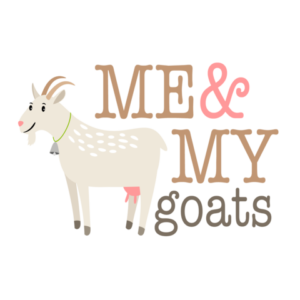Goats are grazers, and will eat whatever is available to them at any time. However, is it possible to overfeed them? What happens if they are overfed and what should be done if they are overfed?
Goats will overeat if there is extra hay or alfalfa available. They will usually get diarrhea and be lethargic. However, something more serious is that they will get something called bloat if they overeat; if they become bloated, it will kill them within 24 hours.
You’re sure to have a lot of questions now that this may pose a problem and you’ll be on the lookout for this more often. No need to worry, there’s a lot more information down below that will be helpful in keeping your goat healthy!
How Much Feed Does a Goat Need

90% of a goats diet is derived from pasture grazing. Usually when they eat hay or alfalfa it’s because they’re getting a treat, or maybe because they need to gain some extra weight. Whatever the case may be, alfalfa and hay are perfect for goats to eat in smaller doses. Of course, goats will overeat if given the chance, so regulating their time spent in the pasture and how much alfalfa they’re eating will help in preventing bloating. They usually only ever need between three and four pounds of hay a day, which is about 3-4% of their body weight.
Goats also require additional hay, which is roughage, for their rumen to function properly. The rumen is what breaks down grasses and hays so as to prevent blockages and diarrhea. Without the constant regulation of hay for grazing, then they will have to be handfed hay or alfalfa constantly on a regular schedule in order to promote a healthy rumen. Signs that their rumen isn’t functioning properly is if they aren’t chewing their cud. It’ll be obvious that they aren’t eating regularly and may be experiencing a blockage or aren’t receiving the proper nutrients because of the lack of cud and energy.
What Are Signs of Bloating
Some common signs of bloating are restlessness, abdominal discomfort, loss of appetite, and increased salivation. Some goats may experience other symptoms, but these are the most common and are also some of the most noticeable. Some goats may also be more lethargic; goats are extremely active creatures, and will be running and happy when they are normal and eating regularly, if they aren’t eating, then they will become exhausted and extremely uncomfortable.
Bloating happens in the rumen, which is an area for digesting; cud from the rumen comes back into the mouth for a second round of chewing. If they aren’t chewing cud, then the rumen isn’t working properly. Once you notice any of these symptoms, call the vet and make sure your hooved friend is seen immediately.
How to Avoid Bloating
Often a goat will get bloated when eating too much legumes; clover or alfalfa, either in green feeds or as new hay, as well as excess wet grasses. This often leads to extreme bloating and will be problematic. The rumen isn’t able to digest and therefore there is an excess build up of gas.
If a goat isn’t able to burp, then their stomach will become distended and unable to finish digesting. Again, alfalfa can be controlled and scheduled when they need it, so ensuring that they are regularly eating through the pasture will avoid bloating. When waiting for the vet, baking soda may be a useful option in helping to reduce the bloating and aid in digestion.
Foods to Avoid Feeding Your Goat

If you’ve read some of our other articles, you’ll know that goats aren’t very picky creatures, and they will graze and have a tendency to overeat. They aren’t usually able to tell if they’ve overeaten, so they’ll eat until they begin to feel excessive bloating in their rumen, and by then it could be detrimental to their overall health. Things to avoid feeding your goat that can disrupt the rumen and flora in their gut are garlic, onion, chocolate, kale, lilac, rhubarb leaves, and a few others that are listed in our article about whether goats can eat chocolate or not.
Goats are able to eat foods that you would regularly put in your compost, except for anything sweet. Scraps such as lettuce, carrots, and so forth are perfectly fine for goats to eat occasionally. Fruits should be avoided if at all possible; fruits that have natural sugars can disrupt the natural flora as well as the rumen and can cause extreme bloating. Some feeds even have sweet additives, which are not good for goats.
Reading the ingredients on feed packages is important in preventing from feeding your goats something that can potentially kill them. It’s usually best to allow your goat(s) to graze through the pasture rather than give them extra feed.
How to Promote a Healthy Rumen
As stated earlier, the rumen will be working effectively if a goat is consistently chewing its cud. The rumen is where the most bloating will occur, which can cause death. Goats can’t talk, so it’s important to watch and regulate their diet as much as you can. They need to have regular access to hay so that they are able to consistently eat while also getting the proper nutrients from grazing. If you’re looking to add an extra supplement to your goats regular feed, or the colder months don’t allow for growth of grass, then feed and grain can be added.
A goat’s rumen is where important vitamins such as B1 and B12 are created, which promote not only gut health but overall health. When the rumen isn’t functioning properly, and these vitamins aren’t being synthesized, a goat has a high chance of dying from a lack of these vitamins in the gut. The only way to regulate gut health is through the food they eat. Don’t over supplement them with alfalfa and feed, as pasture grazing is completely fine and encourages gut health.
